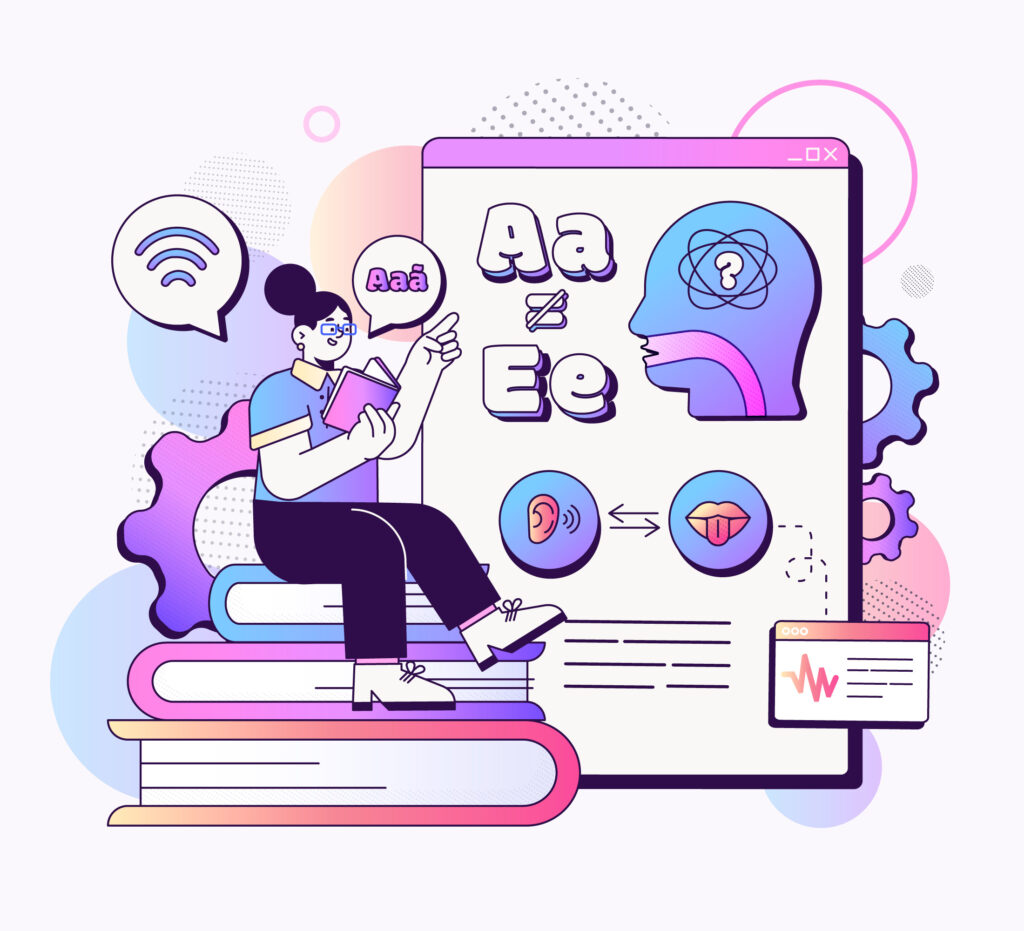Have you ever noticed how some websites rank better on Google even with similar content? The secret is Natural Language Processing (NLP) and its big role in Search Engine Optimization (SEO). According to Dixon Jones, CEO of Inlinks.net, NLP is shaking up SEO by making machines understand human language very well. But what does this mean for you and your website?
In late 2019, Google brought out the BERT algorithm. This change was a game-changer, pushing for high-quality content, context, and relevance in searches. Now, your content should do more than just have good keywords. It should really connect with both search engines and people. Experts, including Steven van Vessum, say using NLP tools is great, but making your content clear and easy to understand is what really matters.
Key Takeaways
- NLP enables machines to understand and process human language, enhancing SEO efforts.
- Google’s BERT algorithm revolutionized search by prioritizing context and relevance over mere keywords.
- Creating user-friendly and coherent content is crucial for effective SEO with NLP.
- NLP helps structure human ideas for machines, thereby improving content relevance.
- Emphasizing user experience and sentiment is key to robust search quality.
What is Natural Language Processing (NLP)?
Natural Language Processing (NLP) combines computer science and linguistics. It helps computers understand human language. NLP is changing the world of SEO. It requires new skills to fit in with its complex progress.
Definition and Key Concepts
NLP takes human language apart to find its meaning. It looks at entities and feelings to understand content deeply. Using NLP with SEO makes sure content connects well with search engines.
This leads to more accurate understanding and judging of content. By using NLP, creators make material that fits search engines’ complex views better.
The Evolution of NLP
The marriage of NLP with SEO has evolved, notably with Google’s BERT update. This upgrade allows the search engine to better understand words. It finds the real meaning behind questions. So, good SEO with NLP now focuses on understanding deeper relationships between words. And it better meets users’ actual needs.
This move marks a shift from relying only on keywords. Now, it’s more about understanding topics and what users need. Using nlp strategies for seo helps handle these shifts. It makes content match both user needs and search engines better.
How Google Uses NLP in Its Algorithms
In the realm of digital marketing, leveraging NLP techniques like BERT can greatly enhance Search Engine Optimization (SEO) strategies. Understanding how to use NLP in SEO involves optimizing website content for natural language queries and conversational search.
By incorporating relevant keywords and phrases that align with user intent, businesses can improve their chances of appearing in search results. Additionally, utilizing sentiment analysis and entity recognition through NLP tools can provide valuable insights into customer preferences and behavior, allowing marketers to tailor their SEO efforts more effectively.
Embracing NLP within SEO practices not only boosts visibility but also helps create a more engaging and personalized online experience for users.
Natural Language Processing (NLP) is a fundamental aspect of Search Engine Optimization (SEO), playing a crucial role in enhancing the understanding and response to user queries. What is NLP in SEO, you may ask? NLP in SEO involves the analysis of natural language patterns within search queries to deliver more accurate and relevant search results. By incorporating NLP techniques like semantic analysis and entity recognition, marketers can delve deeper into user intent and behavior, enabling them to optimize their content effectively. Understanding what NLP is in SEO empowers businesses to create tailored content that connects with their target audience, ultimately boosting website visibility and driving organic traffic.
The Role of BERT
BERT looks at how words connect, not just the order they appear in. This helps Google grasp the subtleties of human language better. Coupled with nlp techniques for seo, BERT goes beyond simple keywords. It figures out what searchers really mean, leading to more precise search results.
Context and Intent Understanding
Thanks to nlp applications in seo, Google can now consider many things. It can clear up what a user is looking for, understand feelings in the text, and see how important certain things are. This new level of understanding changes how search engines work. It makes search results fit what users need and want more closely than ever.

Why NLP Matters for SEO
Knowing why NLP is important for SEO matters today. We’re moving from just using keywords to making content more relevant. This shows us that natural language processing has a lot of power for SEO.
Improving Content Relevance
NLP uses advanced methods like deep learning and entity recognition. They make our content more meaningful to those who read it. This means our answers to users’ questions can be both quick and trustworthy. That’s what they’re really looking for.
Enhanced User Experience
NLP also does sentiment analysis to better match content with what people are looking for. It figures out the tone of the content and measures how well it meets the user’s needs. So, with NLP, we can make a better user experience that Google likes more. Google values content that really understands and speaks well on a topic. And NLP helps us do just that.
Practical Techniques for Using NLP in SEO
Adding NLP to SEO strategies can boost how relevant your content is. It makes people more interested in what you share. Let’s delve into useful ways to tweak content with NLP methods.
Content Optimization
NLP strategies for SEO are key in fine-tuning your content. Text analysis tools help SEO experts understand search term meanings better. This knowledge helps pick out the best words and ideas. They make your content appeal more to search engines and readers.
Making content read naturally is a must with NLP. It means smoothly weaving keywords and ideas into your text. Your content becomes a hit with Google’s NLP and people looking for your info.
Let’s look at how standard SEO and NLP-boosted SEO match up:
| Aspect | Traditional SEO | NLP-enhanced SEO |
|---|---|---|
| Keyword Usage | Emphasis on keyword density | Focus on semantic relevance |
| Content Flow | Structured around specific keywords | Maintains natural language flow |
| User Intent | Basic understanding of search terms | In-depth analysis of search intent |
| Entity Integration | Minimal consideration | Strategic inclusion of relevant entities |
The move toward nlp in search engine optimization means we focus less on just stuffing keywords in. Now, we aim to truly understand and meet what users really want. In the NLP world, crafting content takes both tech skill and creativity. It’s all about hitting the right notes with the latest algorithms.

NLP Tools for SEO Professionals
Using nlp tools for seo professionals can change your SEO approach. It helps you make your content better and boosts your search rankings.
Text Analysis Tools
Text analysis tools play a big role in using nlp for seo. They look at your text in-depth to find patterns and key topics that match what users look for. MonkeyLearn and IBM Watson Natural Language Understanding are top picks for this. They help you understand your text’s meaning, assisting in meeting user needs.
Entity Recognition Tools
Entity recognition tools go even further by spotting exact terms and categories in your content. They make it easier for search engines to understand and rank your pages well. They can find things like names, dates, and places. Tools such as spaCy and Google’s Natural Language API make your content more visible to both search engines and readers.
Using these nlp tools for seo professionals makes your content more competitive online. As you keep using nlp for seo, having these tools is key to improving your strategy and gaining more visibility for your site.
Challenges of Implementing NLP in SEO
Using Natural Language Processing (NLP) in SEO has its hurdles. It combines the need for detailed content analysis with managing its practical side. This balance is crucial to make the most out of NLP’s power while facing the real-world constraints.
Technical Barriers
The tech side of NLP in SEO is tough. It needs us to keep up with complex algorithms and AI tech that keeps changing. For those in SEO, understanding nlp techniques for seo means not just knowing how these algorithms work. It’s also about using them well to check and improve content.
Cost and Resource Allocation
Costing and managing resources are also big obstacles when we use NLP in SEO well. Good NLP tools are expensive, and it takes a lot of time to train a team. Juggling these costs and making things work smoothly can be hard. It’s vital for companies to handle resources wisely while using nlp techniques for seo.
| Challenges | Solutions |
|---|---|
| Technical Barriers | Continuous Learning and Training |
| High Costs | Strategic Budget Allocation |
| Resource Management | Efficient Resource Planning |

Case Studies: Successful Use of NLP in SEO
Using NLP for SEO has shown real value. We will look at two case studies to see NLP’s success in e-commerce and publishing content.
Case Study 1: E-commerce
NLP has made finding products online easier. Businesses now use advanced NLP to make their product descriptions match what people search for. This has become more important with Google’s BERT affecting 10% of all searches. It helps products show up in more relevant search results, boosting visibility and sales.
Research shows that 15% of searches use new phrases, underlining the value of focusing on detailed, long-tail descriptions. This approach broadens the audience for e-commerce sites by capturing unique search patterns.
Case Study 2: Content Publishing
In content publishing, NLP has helped make articles more in tune with what people search for. Editors and writers can now match their work with common search phrases and feelings. This has a big impact on making content meet the audience’s needs more directly.
One key method is tweaking old content using entity recognition and salience. These NLP techniques improve how search engines understand and rank content. A study found a major bump in search traffic after using these NLP strategies.
These studies show NLP is a game-changer for SEO. They highlight big benefits, like easier product finding in e-commerce and more aligned content in publishing. The lessons from these cases demonstrate the edge NLP can bring to SEO.
Future Trends in NLP and SEO
The link between Natural Language Processing (NLP) and SEO is getting stronger. This union brings about new chances and hurdles. Looking forward, we see these fields joining hands with new tech in the near future.
Emerging Technologies
Big steps like large language models (LLMs) and retrieval-augmented generation (RAG) are changing our SEO game. They aim to understand what users are really looking for in depth. This makes finding the right content much smarter.
Optimizing for voice searches is a big deal in the future of NLP. People are using voice search more with things like Alexa and Google Assistant. So, SEO through NLP has to focus on making content for spoken word searches.
“Incorporating advanced NLP models allows for a more nuanced interpretation of user queries and a more accurate deliverance of results.” – Sundar Pichai, CEO of Google
All these steps forward are changing the SEO game, making NLP-focused content very valuable. This trend is leading towards search engines of the next generation.
| Technologies | Impact on SEO |
|---|---|
| Large Language Models (LLMs) | Enhanced context understanding and content generation |
| Retrieval-Augmented Generation (RAG) | Improved search intent matching and relevance |
| Voice Search Optimization | NLP strategies for adapting to spoken queries |

Using NLP (Natural Language Processing) for SEO
Today, using NLP can give you a big advantage in SEO. To start, learn how NLP helps with keyword and content analysis, and checking competitors. This knowledge is key.
Keywords and Content Analysis
NLP lets us break down successful content to find key themes. This helps in making our own strong content. NLP tools look at entities, salience, and categories to give us insights.
For example, Google’s BERT made a big change by focusing on keyword context. It’s not about just adding keywords but making content that’s meaningful. This is where NLP shines.
It also handles sentiment analysis, assessing how people feel about content. Scores show if sentiment is positive, negative, or neutral. Knowing this helps us adjust our content to match what users want. It’s a big boost for SEO. Check it out here.
Competitor Analysis
NLP isn’t just for creating content. It’s great for looking at what competitors are doing, too. By using NLP, we can understand what makes their content stand out. This helps in finding ways to do even better.
This info helps us make smarter moves in SEO. With NLP, we can spot trends and key info. This means we can create content that stands above the rest. It’s a game-changer in the SEO world.
| Metric | Description | Importance for SEO |
|---|---|---|
| Entities | Objects identified in the text | Helps in classification and keyword relevance |
| Salience | Determines importance of entities | Prioritizes critical information |
| Sentiment | Measures user reaction | Aligns content with user expectations |
Conclusion
Into the digital world we go, with Natural Language Processing (NLP) changing how we do SEO dramatically. This switch is from just using keywords to understanding what users really want. NLP helps make content that matches both what people and search engines seek.
By using NLP, we bring the might of AI to make our content better for SEO. This means not only getting seen more but also being more helpful or interesting. Knowing how Google’s tools like BERT work with NLP helps us make content that really catches eyes in search results. Staying up to date as NLP grows is key for SEO pros to keep doing their best.
Adopting NLP in SEO will drive us towards being seen better online. Introducing NLP in our SEO approach helps us meet what today’s search engines need and give users a great time. It’s a change that makes our online thumbprint stronger and keeps our content top-notch in a fast-changing world.
